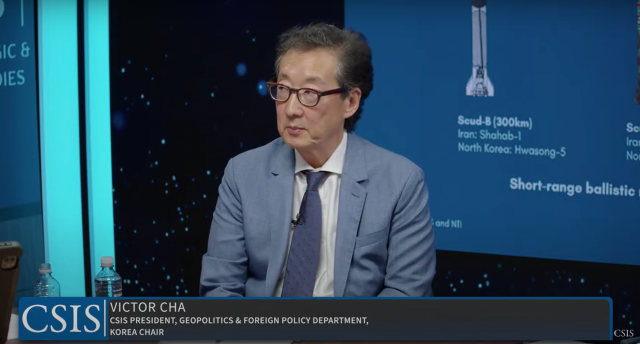
SEOUL, July 01 (AJP) - United States President Donald Trump may attempt to meet North Korean leader Kim Jong-un at Panmunjom during his expected visit to South Korea for the APEC summit in October, according to Victor Cha, Korea Chair at the Center for Strategic and International Studies (CSIS).
Speaking during a CSIS webinar held on June 30 (local time), Cha said a Trump and Kim meeting could be on the table, especially given the president's history of pursuing bold diplomatic gestures. The Asia-Pacific Economic Cooperation summit, to be held in South Korea later this year, may present the right moment for another high-profile encounter.
Their most recent meeting took place on June 30, 2019, when Trump, then in his first term as president, crossed the military demarcation line at Panmunjom after publicly inviting Kim via Twitter. It was an impromptu event during a G20 summit stop in Japan. Although it was historic, marking the first time a sitting U.S. president entered North Korean territory, it failed to revive denuclearization talks that had collapsed earlier that year in Hanoi.
Cha's remarks came amid discussion on the geopolitical aftermath of recent U.S. airstrikes on Iranian nuclear infrastructure. He said those strikes may have hardened North Korea's belief that nuclear weapons are essential for regime survival, weakening hopes for achieving "complete, verifiable, and irreversible denuclearization" (CVID).
"One of the consequences of the strike on Iran may be that CVID for North Korea is essentially over," Cha said. He explained that North Korea is likely to view its nuclear arsenal as protection against scenarios like the U.S. operation in Iran, reaffirming its commitment to the nuclear path.
While it is unclear whether the strikes will open a genuine path to diplomacy, Cha suggested they may encourage Pyongyang to enter talks in hopes of avoiding similar attacks. He also noted that Washington could have new motivation to engage, especially with North Korea's growing military ties to Iran and Russia.
Cha pointed to North Korea's involvement in supplying weapons and ballistic missiles to Russia for use in Ukraine, as well as possible assistance to Iran's missile and nuclear programs. He said this cooperation could expand under the radar, posing broader risks across multiple regions.
He also noted that China's leverage over Pyongyang has diminished in the wake of the Ukraine war, while Moscow has taken a more permissive stance toward North Korea's behavior, providing North Korea greater freedom to act independently.
Copyright ⓒ Aju Press All rights reserved.

